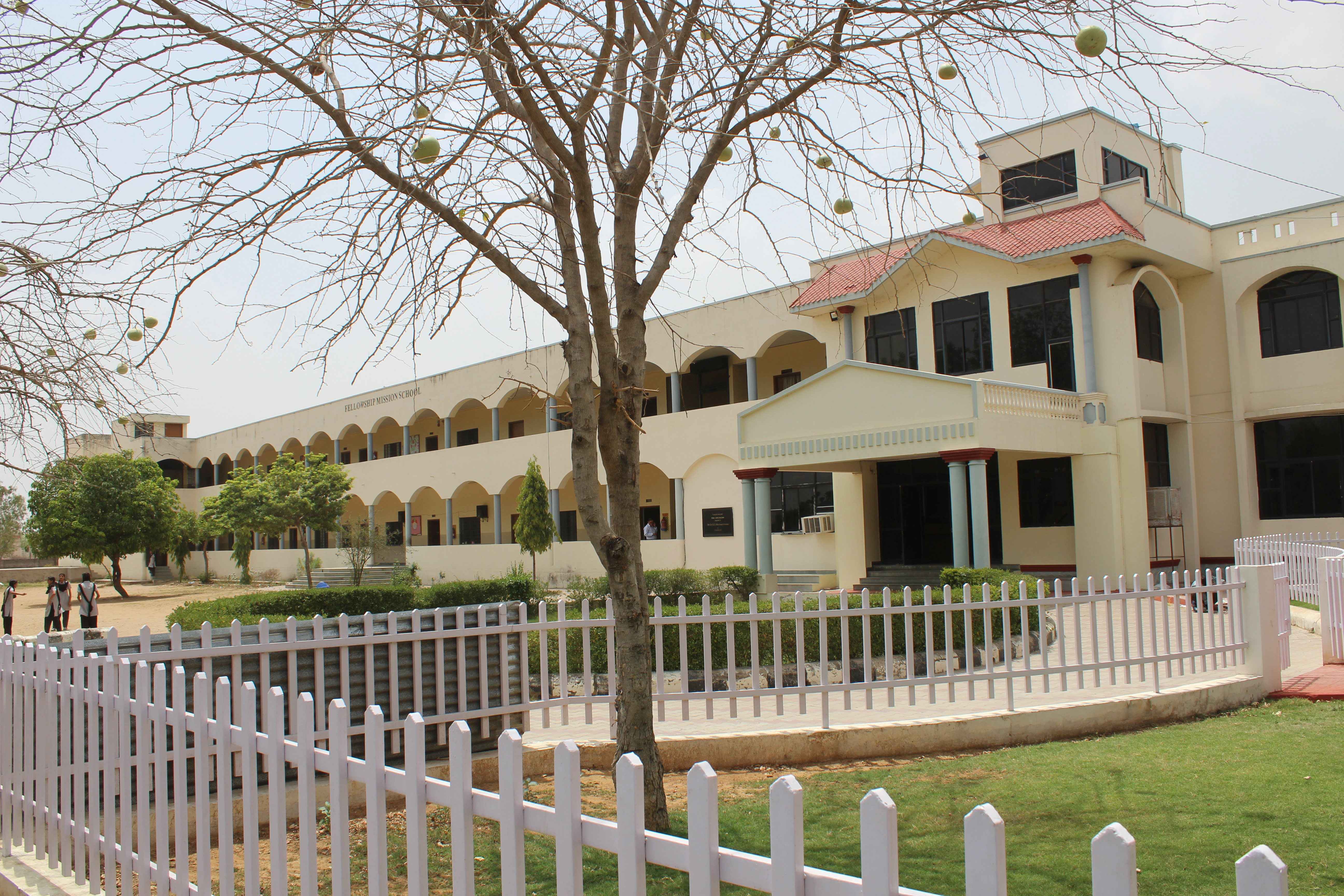
campus visit
WhatsApp reach
Fellowship Mission School is affiliated to the Central Board of Secondary Education (CBSE). We prepare our Students from Play group to XII Standard in accordance with the CBSE Syllabus, giving due respect to the New Educational Policy of the Government of India following Textbooks and Reference books based on the guidelines of NCERT. This enables our students to be well prepared to appear for the, AISSCE (All India Senior Secondary School Certificate Examination) conducted by CBSE.
Fellowship Mission School provides education to students right from Play Group to Senior Secondary Level.
In the Junior Sections, we take extra care to ensure that the syllabus of one class dovetails into the next higher class in a way such that no undue burden is felt by the student.
Scientifically-proven graded methods of teaching towards developing the skill to read and write are adopted. Art and Craft (line and curve drawings, thumb-print sketches, Spray and mosaic paintings, paper foldings, Plasticine models, etc.), Music, Puppetry, Story telling and Role play from an integral part of the Juniors’ curriculum.
A full-fledged language Laboratory with graded lessons and Science and Mathematics Lab to suit the specific needs of students is a unique feature of the Institution.
Work Experience, Outdoor and Co-Curricular Activities, etc. enrich the Seniors’ Curriculum Uncrowded classroom with the Teacher Student ratio working out to an ideal average of 1:20 make individual attention and personalized care a reality.
Subject-wise and class-wise annual curriculum overviews are designed by subject teachers. This document breaks down the academic curriculum for coverage during the session in each grade. It briefly outlines the month-wise curriculum to be transacted by the subject teachers with notes on activities and assessment schedules for various Periodic Tests. This serves to standardize and monitor the timely completion of learning modules for the schedules of planned assessment for the academic session. Separate annual curriculum plan is prepared at the beginning of a new session after through discussion among the teachers, for every class.
The ACP (Annual Curriculum Plan) flows into chapter-wise pedagogical plans in the form of Unit Plans. The Unit Plans are chapter-wise pedagogical plans aligned with the mandated Learning Outcomes of CBSE. They outline the student-centric teaching methodology and strategies for transacting teaching-learning experiences for each chapter of every subject. They address the full range of learning needs of individual students providing coherence, balance and continuity across all the domains. They enumerate the teaching strategies providing specifics of learning objectives, the traditional and digital tools to be employed, the teaching points for the variety of learning situations/opportunities, assessment tools and suggestions for remediation for learners. They also incorporate the interdisciplinary linkages like the new initiatives of Art integration, Health and Wellness and Life Skill education.
Creating cross-curricular linkages are vital to learning as we help to connect prior knowledge with new information. For example, Mathematical data handling and interpretation can be effectively applied in geography and science. Children can write better-framed answers in history, geography and science when they have learned how to write explanations/short descriptions in a language. Similarly, Life Skills like empathy, problem solving and interpersonal communications can be easily integrated with the study of literature and other areas. Universal Values, Life Skills, Constitutional Values with emphasis on realization of Fundamental Duties may be incorporated depending upon context in almost all the subjects. Keeping this in mind, our school always takes efforts to integrate different subject areas to give wider scope to the students to explore learning avenues.
Model teaching schedules are prepared annually where teachers peer assess each other’s teaching practices for effectiveness and efficiency. Curriculum discussions and brainstorming sessions are held throughout the year to improve the plans and implementation of educational processes. The school promotes innovative, responsible and ethical use of digital technologies. Teachers share resources and teaching-learning material to make an effort to learn from the best practices of other schools to move away from rote learning to a more student-centric teaching-learning model of education with a constructivist framework leading to experiential learning. Latest trends of education like deep learning, problem solving and innovation and collaborative learning are continually being incorporated for transformation of learning experiences to align them with global teaching practices.
English
Geography
History
Political Science
Economics
Accountancy
Business studies
Information Practices
Physical Education
English
Second language:Hindi
Third language: Sanskrit (for Classes 6 to 8 only)
Mathematics
Science
Social Science
Information Technology (as an additional subject for Classes 9 and 10)
Language I – English
Language II – Hindi
Mathematics
Environmental Science
Work Experience, Life Skills
Environment Education
Art Education
Physical and Health Education
Computer (From Std.I onwards)
The School Academic Year comprises of
Monthly test : Almost every month
Periodic Test
Half yearly : September - October
Final Exam : February - March
